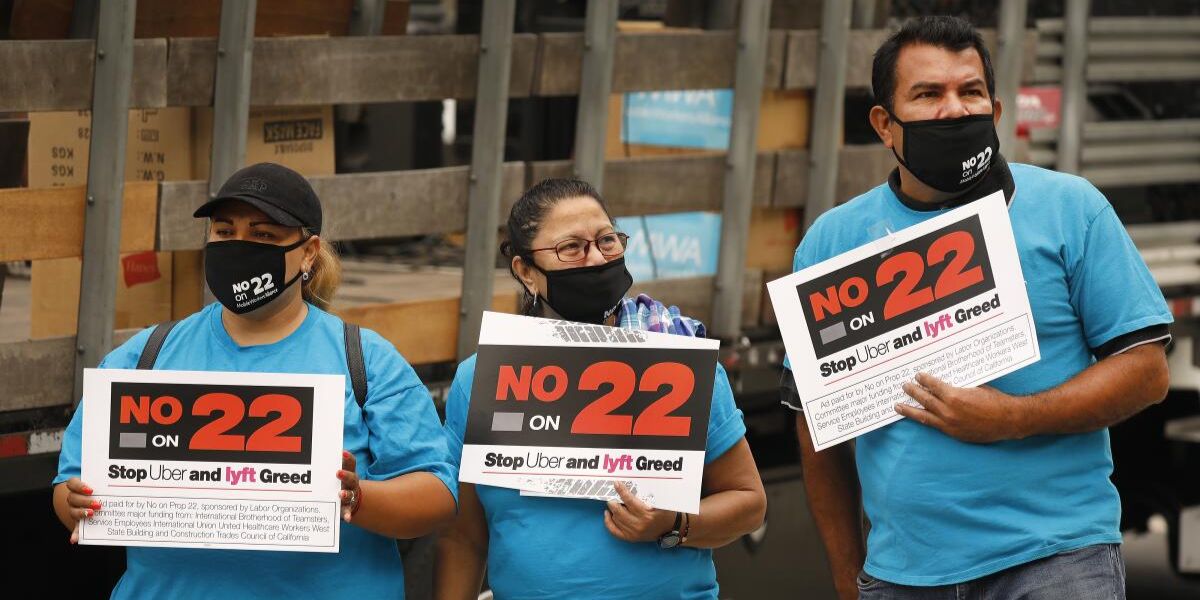App-based drivers are permitted to continue operating as independent contractors rather than employees under Proposition 22, which was unanimously supported by the California Supreme Court.
Proposition 22 provided app-based gig workers with certain advantages, including a guaranteed minimum salary and health insurance subsidies, if they worked an average of 25 hours per week. It was passed in 2022 with 58% of the vote.
The most expensive ballot issue in state history was supported by $200 million from DoorDash, Lyft, Uber, and other app-based businesses, while labor unions spent roughly $20 million opposing it.
A lawsuit filed in 2021 argued that the proposition was unlawful due to its restriction on the state legislature’s ability to provide workers the freedom to organize and its exclusion of drivers from workers’ compensation eligibility.
Additionally, critics claimed that since Uber and Lyft drafted the legislation and DoorDash, Postmates, and Instacart backed it, gig companies were purchasing their own laws.
Read Also: Driver Charged with DUI After Hialeah Crash Injures Infant and Two Others
Ahead to oral arguments in May, dozens of delivery and ride-sharing drivers gathered on the steps of the California Supreme Court. A recent study by the Labor Center at UC Berkeley examined the average income of gig drivers in five major US cities and discovered that, after expenses, drivers make, on average, less than the minimum wage.
According to the same report, meal delivery drivers made $4.98 an hour before tips, and ride-share drivers made an average of $5.97 per hour before tips.












Leave a Reply